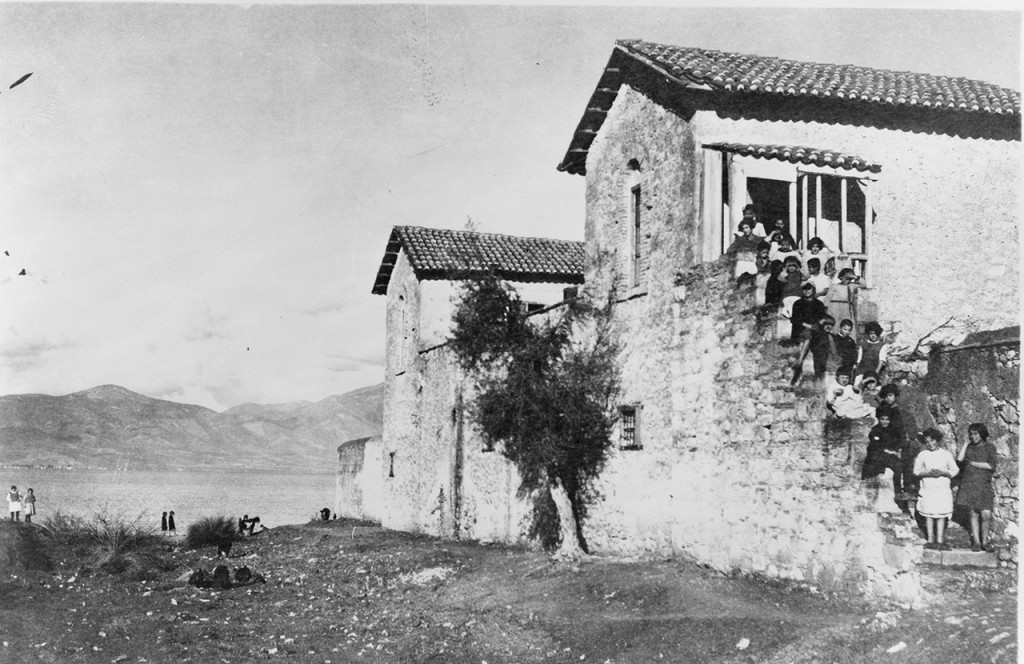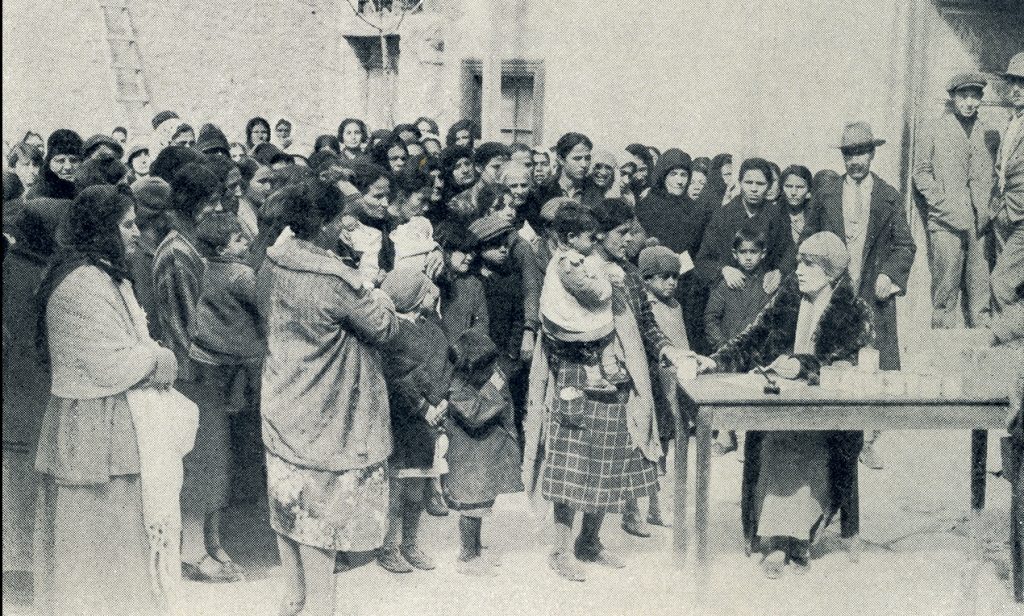From Relief to Development: The Unstoppable Alice Carr
Alice Carr was a teacher, a nurse, and a lifelong humanitarian. Carr was a pioneering force behind Near East Relief’s orphanage work in Greece. She was also an accomplished medical specialist who helped transform Near East Relief to the Near East Foundation.

THE ROAD TO THE NEAR EAST
Born and raised in Yellow Springs, OH, Alice Griffith Carr dedicated her life to improving public health in Greece and the Near East. She attended Antioch College and embarked upon a career as a a teacher. This marked the beginning of a lifelong commitment to child welfare.
Carr left teaching to attend the Johns Hopkins Nursing School in Baltimore, MD. Upon graduation, she travelled to France as one of the first Red Cross nurses to serve during World War I. Carr went on to work with the Red Cross in Poland, Lithuania, Serbia, Turkey, Czechoslovakia, and Syria during the early 1920s.
In 1923, while stationed in Greece, Carr joined the staff of Near East Relief. She was credited with eradicating malaria at the orphanages in Corinth. She also helped to save the lives of 600 Near East Relief orphans when a dengue fever epidemic swept through Athens in 1928.
Right: Alice Carr’s NEF staff portrait, c. 1940.

Girls in black uniforms at a Near East Relief orphanage in Greece, 1920s.

FIGHTING A VICIOUS CYCLE
Carr was named Near East Foundation’s Director of Public Health in Greece in 1930. She gained international recognition for her tireless work fighting typhus, malaria, and tuberculosis. Carr established child welfare centers and medical clinics. She also created educational programs for refugee women as a means of disease prevention.
Carr was active in the 1933 creation of NEF’s rural clinic in Marathon, Greece. The clinic was a cooperative health project with the Greek government from the outset; it was the first program of its kind. The clinic was located in an old coffee house with living quarters for the nurses. Carr chose this location rather than the two small rooms offered by the Greek government.
Malaria was the most visible problem in Marathon, but Carr recognized that a vicious cycle of poverty and illness was at work in the community.
Right: NEF Director of Public Health Alice Carr (back row, in black) at the Marathon Health clinic, c. 1933.

Alice Carr's medical work in Greece included frequent home visits in the community. Carr is the woman on the right. Probably Marathon, c. 1933.
CREATIVE METHODS, INCREDIBLE RESULTS
Carr enjoyed considerable autonomy in her work. She recognized that the swamps surrounding Marathon were breeding grounds for disease-carrying mosquitoes. Carr recruited local workers to dig trenches to divert the standing water – she even dug some of the trenches herself. Carr also took the drastic step – against the advice of NEF Foreign Director Laird Archer – of adding crude oil to the swamps to kill mosquitoes.
Both the Greek government and her own colleagues found Alice Carr’s methods surprising, but her success was undeniable.
Carr received a gold medal from the Greek Department of Health. In 1934, Greece presented Carr with the Silver Cross of the Order of the Phoenix in recognition of her service to the Greek people.

Alice Carr helped to eliminate disease in Near East Relief orphanages in Greece. Marathon Orphanage, 1920s.

GUARDIAN OF PUBLIC HEALTH
Once local malaria rates were reduced, the Marathon clinic became a “maintaining clinic.” Carr hired Greek medical professionals, including a nurse from Crete and an eye specialist from the Ministry of Health, to promote long-term health in the community. Carr also explored ways for families to make extra income, such as weaving and silk culture, to achieve sustainable economic results – thus combatting the cycle of poverty and illness.
Carr kept meticulous written reports on rural medical cooperatives, village rehabilitation, public health, sanitation, and disease control. These documents were vital to the expansion of NEF’s work to other countries.
The German army expelled all Americans from Greece in 1941. Carr travelled to New York City to assume the role of Public Health Advisor for NEF. She also lectured on behalf of the organization. Alice Carr retired in 1948, after more than 20 years with NEF. She died in 1968.
Specialists like Alice Carr were instrumental in the transition from Near East Relief to the Near East Foundation. The programs that Carr and her colleagues developed continue to shape NEF’s programming to this day.
This Dispatch was adapted from A Lasting Impact: The Near East Foundation Celebrates a Century of Service, (c) 2015.
The Near East Relief Historical Society relies on your donations. Make a gift to the Near East Foundation today!

Alice Carr (seated) distributes milk at a refugee camp in Greece, c. 1923. From James L. Barton's The Story of Near East Relief, 1930.
